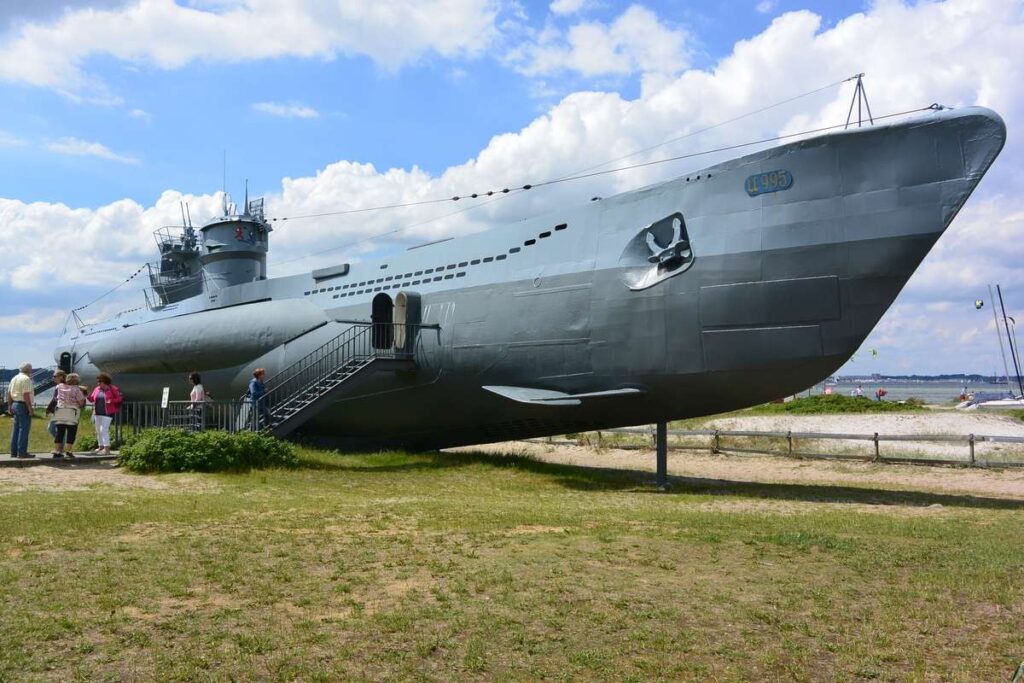Sometimes disparate life experiences circle back together in ways that were meant to be. After studying German culture, history, and language at university — and not knowing what I wanted to do — I took a job in Kiel, Germany.

Turns out, Kiel was one of the primary U-boat bases in WWII, sitting as it does on the Baltic Sea. English bombers raised the city and the harbor 80 percent to the ground and the water. But the Germans left some of the concrete U-boat berths up-ended in the harbor as a Denkmal — literally translated “a thinking moment” — a monument, intended as a dark, sad reminder in this case. The town even has a surviving U-boat up on the beach that you can tour.
Below Kiel, the nearest big town in that north part of Germany is the wealthy city of Hamburg, once the largest U-boat base, with access directly to the North Sea. The girls of the red-light St. Pauli district there along the waterfront will still pull the shirt off your back if you give them a shopper’s glance.
Back home after that stint, the movie Das Boot had just come out, a pioneering and instant classic in war movies. I could even recognize some of the Schleswig-Holstein accents and slang of the sailor characters.
Years later, learning of the German POW farm labor from my in-laws in the Midwest, revisiting the history of a surrendered U-boat in our long-time getaway spot in Lewes, Del., and channeling the experience of my predecessors and family contemporaries who farmed on the peninsula and served in the American military, well… It seemed I had to bring this potent admixture together in this throwback tale set in a time gone by.
Hope you enjoy Ella’s War.